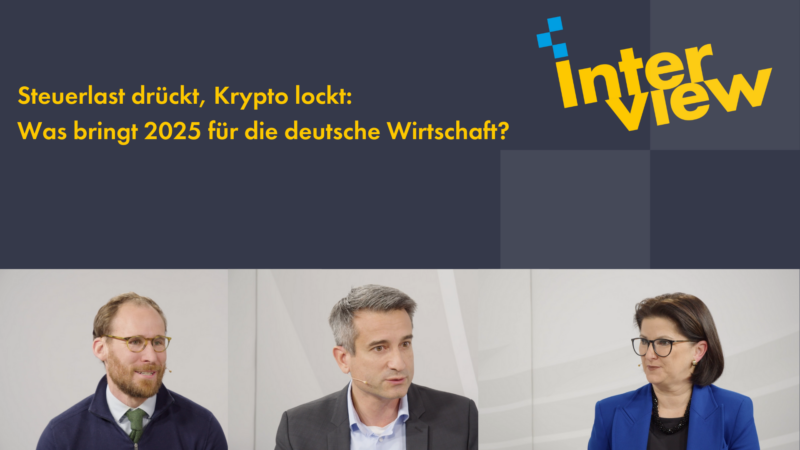"The e-commerce industry is not only fast-moving and adaptive - it is a future-proof industry with incredible growth potential!"
Share this article
Categories

E-commerce is associated with numerous special tax features. Keeping track of these complex regulations takes time and nerves. It's a good thing that our tax consultants are not only experts in their field, but also bring a good dose of creativity to the table and develop new ideas that drive e-commerce consulting forward. Katrin Wallis heads up the Felix1 and fynax division in Eberswalde. She told us what makes the industry so exciting for her and what special features online retailers need to consider when it comes to consulting.
What role do you play in the company?
I manage the Felix1 and fynax division, which means I coordinate and am the contact person for customer sales, customer service and our cooperation partners, among other things. I look after the onboarding of our clients, handle conference calls and a large part of the bookkeeping for our Felix1 and fynax mandates - fun fact: I'm not a tax consultant!
How many tax consultants or employees do you have?
We have a total of 16 employees, two of whom are tax consultants. Our team is a diverse mix, we employ business administration graduates, tax clerks as well as tax specialists and accountants.
How long have you been part of fynax and why did you decide to join?

We were one of the first three fynax test law firms and have been involved since the launch in 2019. Our law firm decided to become part of fynax because of our e-commerce specialization. For us, the switch to the field of online retail was decisive: the industry is not only fast-moving and adaptive, it is above all an extremely future-proof industry with incredible growth potential. Data processing, automated booking processes and the volume of data make this area even more exciting for tax consultancy.
What makes a good tax consultancy for you?
In general, I believe that good tax advice must always be "up-to-date". Two other important factors: adherence to deadlines and availability. It is extremely important that the tax consultancy adheres to deadlines and always proactively informs the client in advance when and how these are to be met. This also creates a professional basis of trust, which is very important between clients and tax advisors. By accessibility, I actually mean both physical and digital accessibility.
Today, it is just as important to have digital and reliable access to your tax advisor as well as a local contact. For me, however, the be-all and end-all of good tax advice is communication between the client and the tax advisor. A basis of trust can only be created if both sides communicate with absolute transparency - even if there are sometimes uncomfortable topics that need to be discussed.
What makes the e-commerce sector so exciting?
You can list many factors. For me, the e-commerce sector is an industry with rapid development potential and great dynamism. It is also diverse, and there are generally no limits to marketplaces such as store systems and payment methods. And: even supposedly small online retailers have a chance of significant growth through targeted marketing measures - even in the short term!
In contrast to brick-and-mortar retail, online retail allows you to serve a larger customer base - in Germany, the European Union or worldwide. There are generally fewer hurdles to be overcome in order to sell your goods globally.
What are the special features of advising e-commerce companies?
E-commerce companies have a wide range of payment options and therefore incredible growth potential, which can also change at short notice. Collective payments, orders on account, buy-now-pay-later and many other payment options - online retailers can easily lose track of these processes. That's why it's all the more important to have a partner at your side who, in addition to tax obligations, doesn't lose track of things.
However, it is also important to remember that online channels are advertised very differently to bricks-and-mortar retailers, as they are digitally positioned and use other channels to reach more customers. The biggest difference, however, lies in the international relationship: it is now possible for online retailers to operate from any location, use warehouses abroad, export abroad and import goods from abroad. What should not be neglected, however, is that all of these processes entail tax obligations. This is why transparent communication with the tax consultant is so important.
Further contributions

Tax burden depresses, crypto lures: what will 2025 bring for the German economy?


